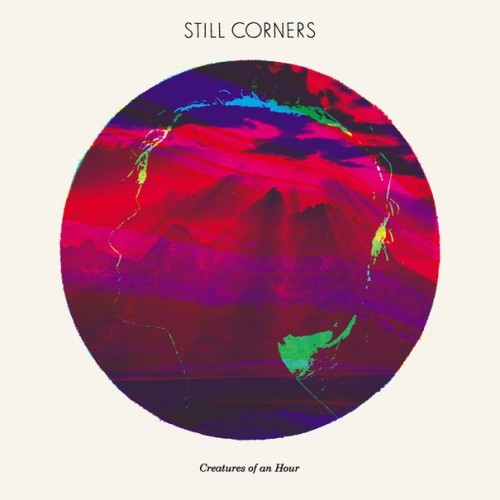There is something undeniably alluring about Tessa Murray. This would be fine if it weren’t for her leading us into deeply troubling bunny-boiler territory from the get go: “it’s like we’re going cuckoo / me and you.” She whispers her way through this impressive debut offering, sometimes barely even there at all, a shadow of her former self taking over, a multi-tracked ethereal choir of forgotten Tessa Murrays glowing faintly, desperately trying not to fade away. But to equate the light-touch approach of her vocal work with her demeanour being something of a wilting willow would be a foolish judgement to make. There is definitely something aggressive simmering beneath the surface. Indeed, when you recall such eerie lines as “made a little call on the telephone / tried to see if you’re alone” after the short-but-sweet 30 minutes are up, you may well ask yourself why you stuck with Still Corners for the ride.
Moments of murky brilliance are peppered throughout, artfully blending half-remembered music-box melodies from a forgotten age which have decayed and distorted over time with alternating swipes of clanging, echoing guitar wails and something a little more direct and menacing, like a sepia-toned photograph of children innocently playing in a lake with an out of focus crocodile lazily casting its eye on its lunch in the background, just out of harm’s reach – for now. There are no clever tricks or overproduction here, with a hankering for atmosphere and mood as much as for hooks and choruses. Our head is dunked in a bucket of water, we cough and splutter and eventually give up the struggle, falling into a fitful unconsciousness, only to be hauled out of the darkness and into the bright lights minutes later, desperately trying to figure out what we heard or didn’t hear, only to be jolted to attention by a sharp stab of synth carefully orchestrated to set your hairs on end. They teeter and sway between clarity and obscurity with the skill of a nonchalant drunk, not particularly content with either and finding beauty in a collage of the two.
Without striving to be as overtly melodramatic as some of her contemporaries, Murray harnesses that desperation which Portishead’s Beth Gibbons manages to pull off so well but by containing and internalising it, manages to offer a refreshingly navel-gazing approach to the pysche of the modern lover. A modern lover, it should be said, with a penchant for retro cinema, as anyone who has seen them live will know. While the band plays, a montage of old footage unfurls onto their bodies and the screen behind them. The name Still Corners might seem abstract at first, but it makes sense when thought about in the context of cinema: the corners of the screen might very well be still, but within those four points, anything goes.

